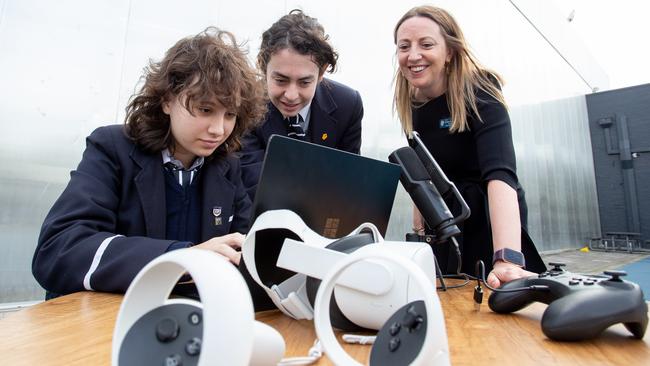ChatGPT passes grade with teachers, but it’s not an A+ student yet
Arguably the biggest change in technology since the internet is here, and it will utterly change how kids learn at school. And SA teachers are (mostly) onboard.
Education
Don't miss out on the headlines from Education. Followed categories will be added to My News.
Three in five teachers are looking forward to integrating artificial intelligence into classroom learning but many also worry chatbots could curb students’ writing ability and lead to a spike in plagiarism, national research shows.
The insights come from analysis of a wide-ranging survey of primary and secondary teachers across the public and private sectors, as part of McCrindle Research’s annual snapshot of education trends.
“The rise of AI is here … we wanted to get the perspective of teachers as they will be the ones not only utilising these technologies but also helping kids use them,” McCrindle’s director of advisory Ashley Fell said.
“It was really encouraging to see the majority of classroom teachers (59 per cent) viewed artificial intelligence as a tool to enhance students’ learning and development (while) three in five (62 per cent) say they are excited about the integration of AI into aspects of their role.”
But there is apprehension, too, with 41 per cent of teachers viewing AI as a “threat” while two in five (38 per cent) admit to feeling nervous about its introduction.
“Teachers are always having to learn new content, new syllabus but AI poses so much unknown around things such as how we test kids’ knowledge, how they do their research … 57 per cent believe it will hinder students’ ability to write,” Ms Fell said.
Seven in 10 (71 per cent) worried ChatGPT and other AI technologies would increase plagiarism.

McCrindle social researcher Sophie Renton said teachers’ commitment to “maintaining educational integrity” emerged in survey results.
“The desire is to build a base of critical thinking and curiosity around the information that ChatGPT generates, and not take it at face value but drive further curiosity,” she said.
It is an approach being taken by independent coeducational city school Pulteney Grammar, which has partnered with UniSA’s Centre for Change and Complexity in Learning to conduct AI research in the classroom.
“We are constantly tinkering and exploring AI and new technologies … the use of AI in classes allows students to turn their ideas into something of substance, quickly and professionally so they can then expand their initial idea to greater things,” science and technologies teacher Jarrod Johnson said.
Deputy principal (teaching and learning) Katherine Adnett said schools must consider and educate students on “ethical challenges”, such as embedded biases within AI training data.
“It is vital that we focus now more than ever on soft skills such as critical thinking and social awareness, to support our students to successfully navigate the unknown terrain that sees AI as integrated into the human experience, both now and in our students’ future workplace,” she said.



